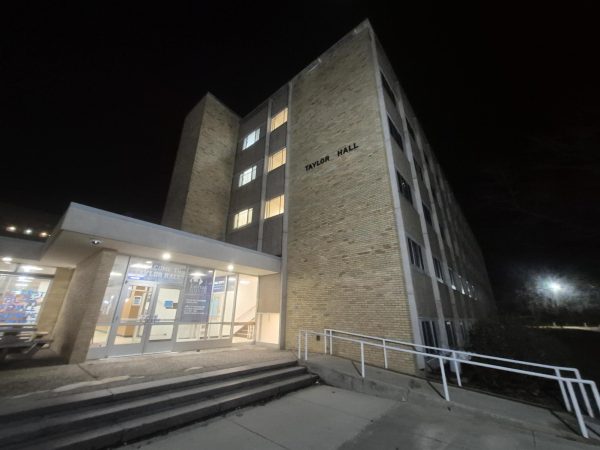HOPE honors victims of domestic abuse
As the sun set Tuesday, survivors and victims of domestic violence came together in the Rennels Pavilion of Morton Park to share their experiences and support.
The sixth annual HOPE of East Central Illinois candlelight vigil brought together women and children of all ages to commemorate National Domestic Violence Awareness Month.
HOPE is a local domestic violence agency that serves Coles County and six surrounding counties.
Angie Hunt, housing director of HOPE, said domestic violence is an issue that is often unnoticed in a community but is important to recognize.
“This is a very serious issue that we really have to start paying attention to,” she said, a purple ribbon pinned to her chest in honor of victims of domestic violence.
As she shuffled around the pavilion, setting out cups and a cooler of hot chocolate, HOPE volunteers and Eastern students hung T-shirts on a thin line of thread.
The line of T-shirts circled the entire pavilion, each T-shirt marked with words of encouragement, pain and revelation.
Hunt said most of the T-shirts were made by HOPE clients and other similar organizations as a part of the Clothesline Project. Also, many individuals bought and designed their own T-shirts to donate to HOPE.
“Pain is not love,” “Your heart will mend,” and “Break the cycle” read several of the T-shirts.
A white, small children’s T-shirt splattered in red paint hung from the line. On it a child had written in red marker “Dear daddy, please don’t hit me anymore.”
Hunt said designing the T-shirts and writing messages on them can be very therapeutic and life-changing.
“The point of it is to put it down on a T-shirt through words and art and be able to turn your back on it and walk away,” she said. “They are very, very powerful.”
Hunt said she knows the pain of domestic abuse and was once a client of HOPE. After a 5-year relationship and marriage, Hunt left her abusive husband.
“I felt very alone, very isolated; I felt ashamed,” she said. “I really thought that is was my fault; that it was something I was doing wrong.”
HOPE was able to save Hunt from her abusive relationship and change her life for the better, she said.
“They were of such enormous support to me,” she Hunt said. “They really helped me change my life, and I knew this was the place I wanted to work.”
As the local folk string band Motherlode played under the pavilion, Brenda Arnold, of Charleston, sat on a bench, occasionally speaking with the women and children who passed.
Arnold was a Charleston police officer for 24 years and specialized in helping women and children in domestic abuse situations.
Pausing periodically to push back tears, Arnold remembered the many individuals she helped over the years and the many faces she saw over and over again.
“I became very well acquainted with some of the families,” she said, brushing white strands of hair off her wet cheek.
Arnold said when she retired from the police department, she could not stop helping those she had helped for so long and began to volunteer at HOPE.
“I stayed with it,” she said. “I became emotionally involved.”
HOPE is a place where those individuals and families she worked with for so many years, and those falling into the same situation, can find support and encouragement to escape abuse, Arnold said.
“We want each family, each person, to find the end of the violence, the end of being a victim,” she said.
As community members began to fill the benches and lean against the poles of the pavilion, HOPE members and clients took hold of a microphone and told their personal stories and poems about domestic violence.
Arnold gripped the microphone and read from a story she wrote but had never read aloud before.
The story was read from the perspective of an 8-year-old boy whose mother is abused by her husband.
Arnold wrote the story in a vague manner and does not describe the actual abuse of the boy’s mother. However, the words of the boy cut through to the marrow of the pain.
“When dad gets like he gets and does what he does, that’s why mom’s leaving,” she read to the hushed crowd.
Once the volunteers and clients had read their stories and poems, candles cradled by paper cups were handed out to the crowd.
As the flames were passed from one candle to another, the members of the crowd broke their conversations for a moment of silence, T-shirts swaying in the wind around them.
Tim Deters can be reached at 581-2812 or tadeters@eiu.edu.


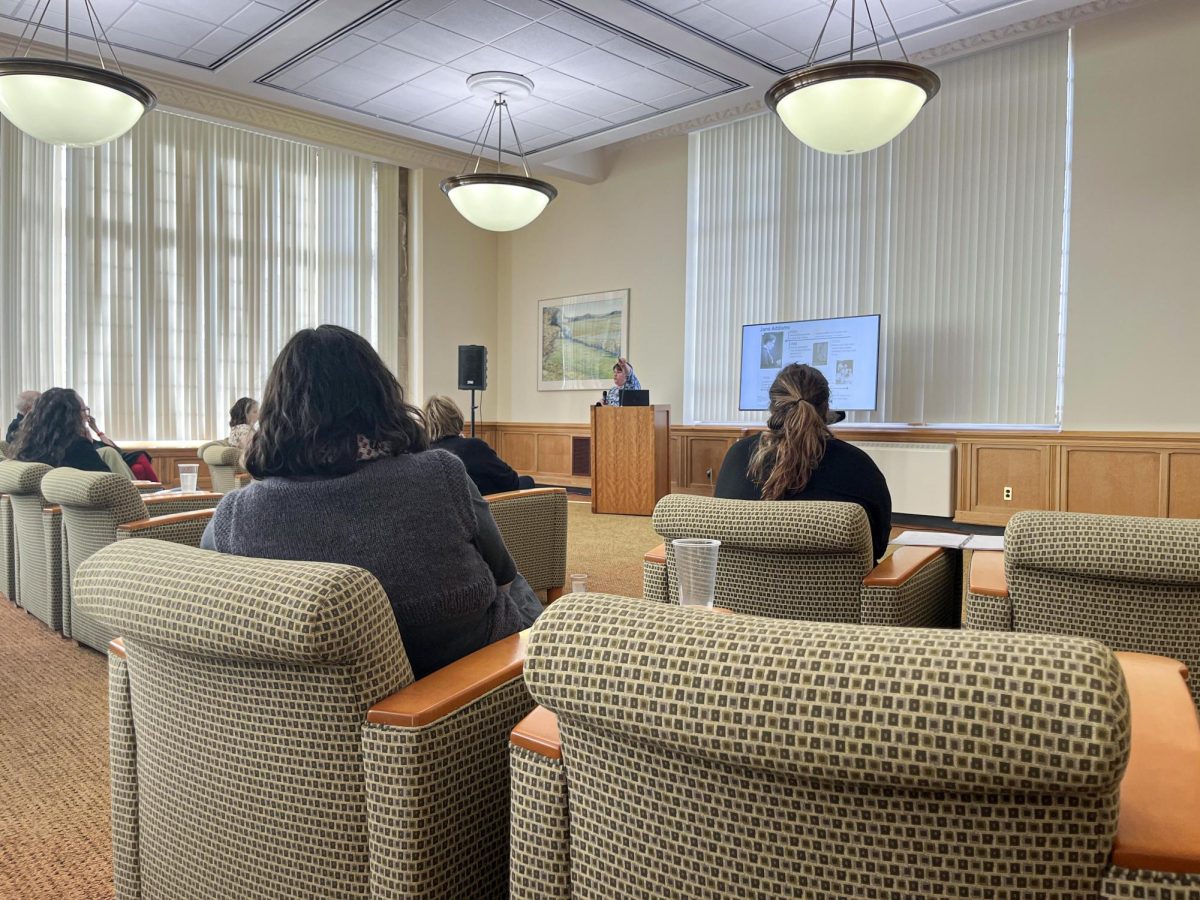


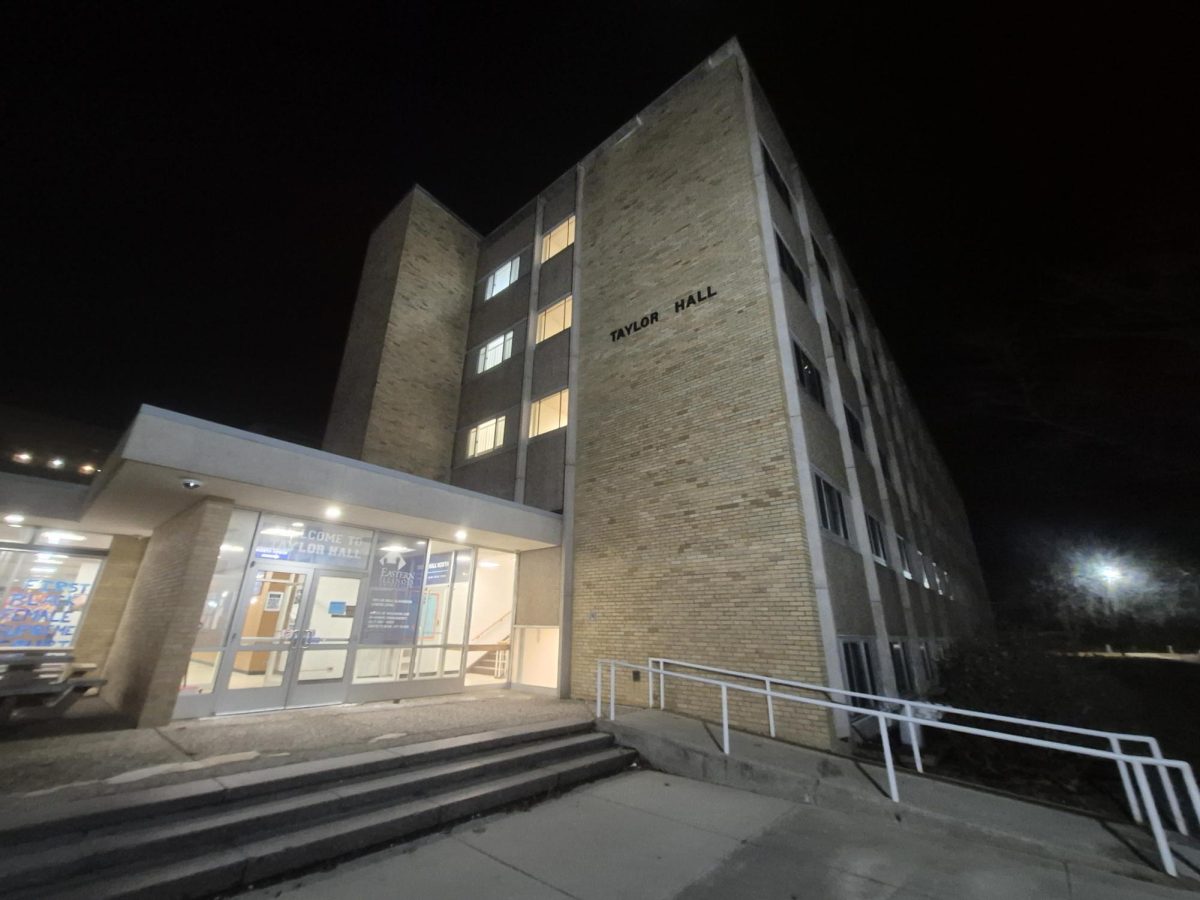


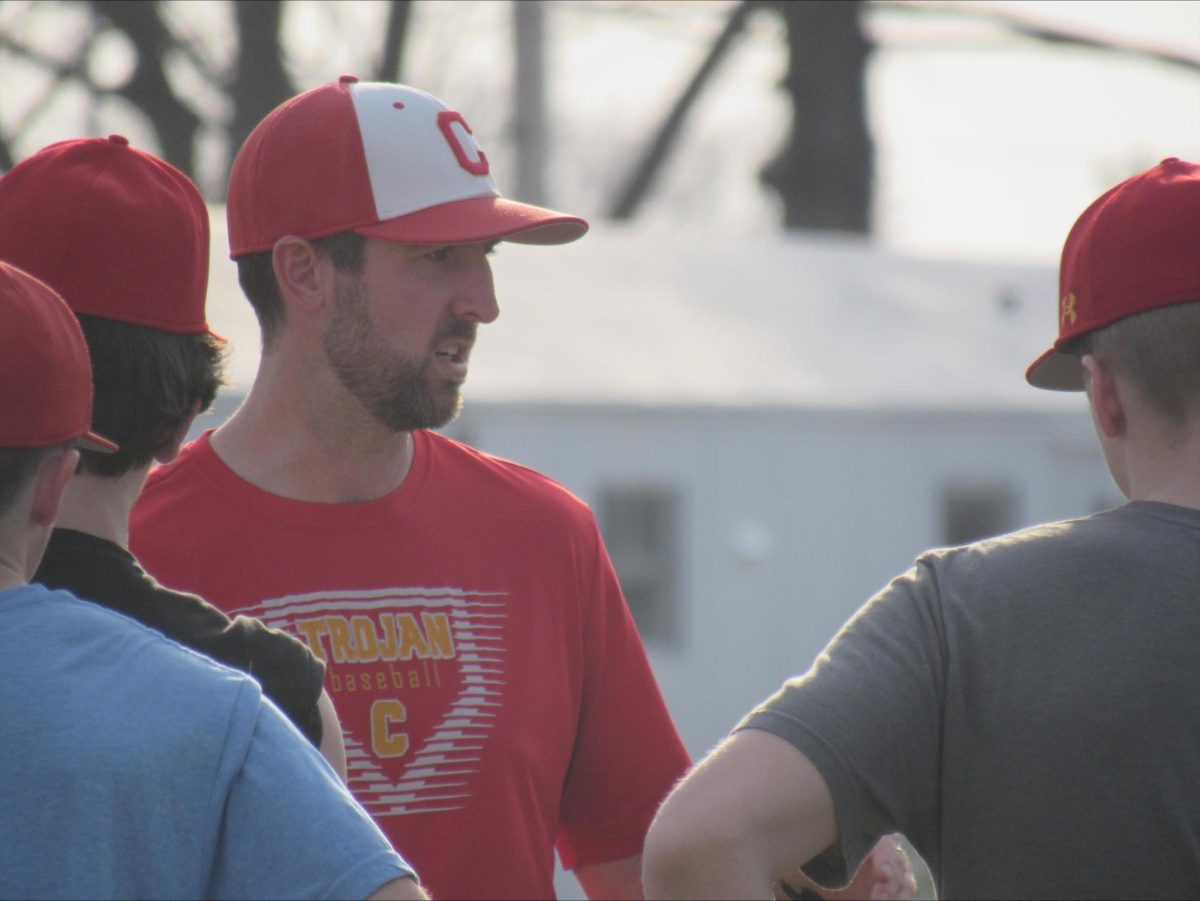
![[Thumbnail Edition] Eastern Illinois University baseball's hitting coach and recruiting coordinator Mike Pugliese urges players on the team to increase their effort after a slow start to its pregame routine at the team's first intrasquad scrimmage of the season at O'Brien Field on Jan. 31, 2025.](https://www.dailyeasternnews.com/wp-content/uploads/2025/03/BB_02_O-1-e1741909628540-1200x702.jpg)
![[Thumbnail Edition] Senior tennis player Luisa Renovales Salazar hits the tennis ball with her racket at the Darling Courts at the Eastern Illinois University campus in Charleston, ILL.](https://www.dailyeasternnews.com/wp-content/uploads/2025/03/Tennis_01_O-1-e1741807434552-1200x670.jpg)
![[Thumbnail Edition] Senior right-handed pitcher Tyler Conklin pitching in the Eastern Illinois University baseball team's intrasquad scrimmage at O'Brien Field in Charleston, Illinois on Jan. 31.](https://www.dailyeasternnews.com/wp-content/uploads/2025/03/TC_01_O-e1741567955534-1200x669.jpg)




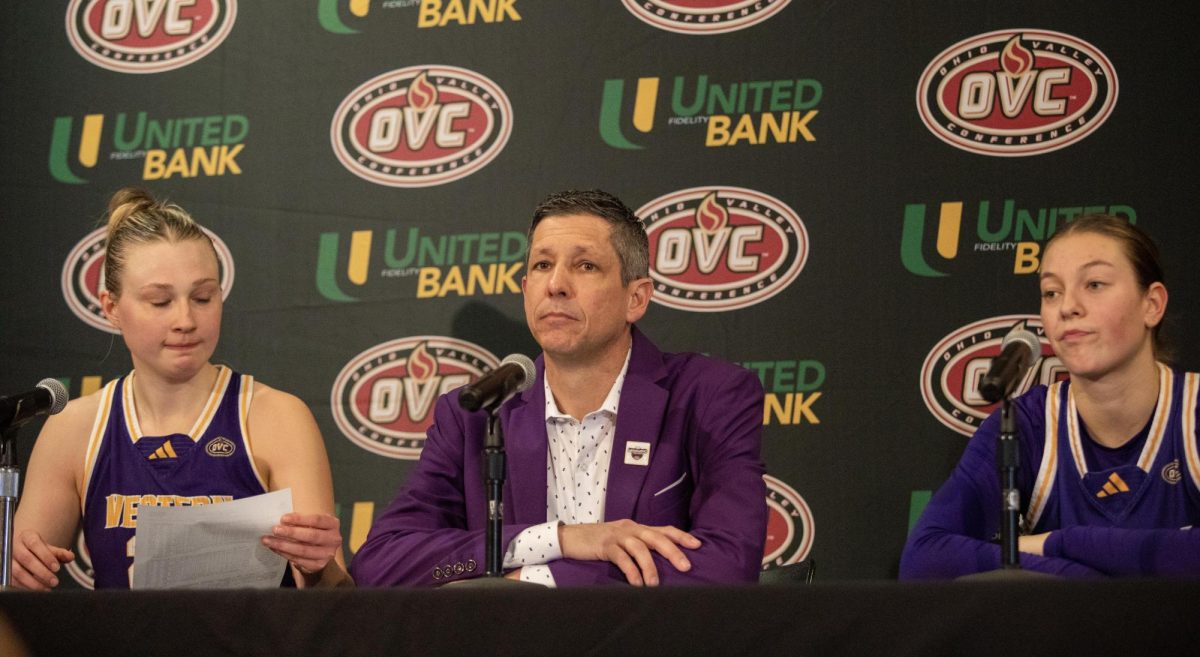
![[Thumbnail Edition] Senior, forward Macy McGlone finds an open teammate to pass the ball too during the game against the Tennessee State Tigers 69-49, in Groniger Arena on the Eastern Illinois University campus, Charleston Ill.](https://www.dailyeasternnews.com/wp-content/uploads/2025/03/WBB_02_O-1-e1741228987440-1200x692.jpg)


















![E[Thumbnail Edition] Eastern Illinois softball freshman utility player Abbi Hatton deciding to throw the softball to home plate in a fielding drill during softball practice at the field house in Groniger arena on Tuesday Feb. 11.](https://www.dailyeasternnews.com/wp-content/uploads/2025/03/SB_03_O-e1741208880750-1-e1741209739187-1200x815.jpg)

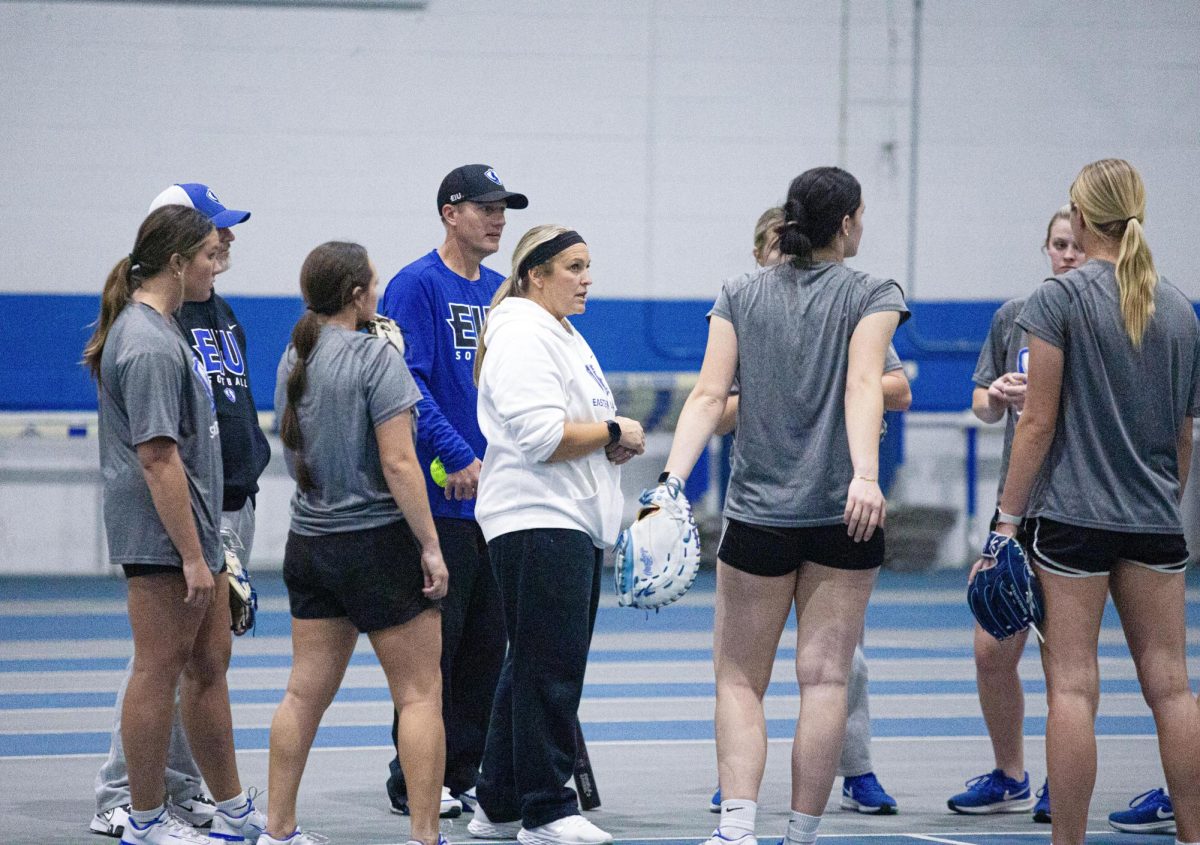













![The Weeklings lead guitarist John Merjave [Left] and guitarist Bob Burger [Right] perform "I Am the Walrus" at The Weeklings Beatles Bash concert in the Dvorak Concert Hall on Saturday.](https://www.dailyeasternnews.com/wp-content/uploads/2025/03/WL_01_O-1200x900.jpg)
![The team listens as its captain Patience Cox [Number 25] lectures to them about what's appropriate to talk about through practice during "The Wolves" on Thursday, March 6, in the Black Box Theatre in the Doudna Fine Arts Center in Charleston, Ill.](https://www.dailyeasternnews.com/wp-content/uploads/2025/03/WolvesPre-12-1200x800.jpg)





















